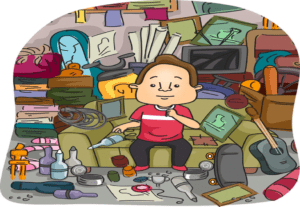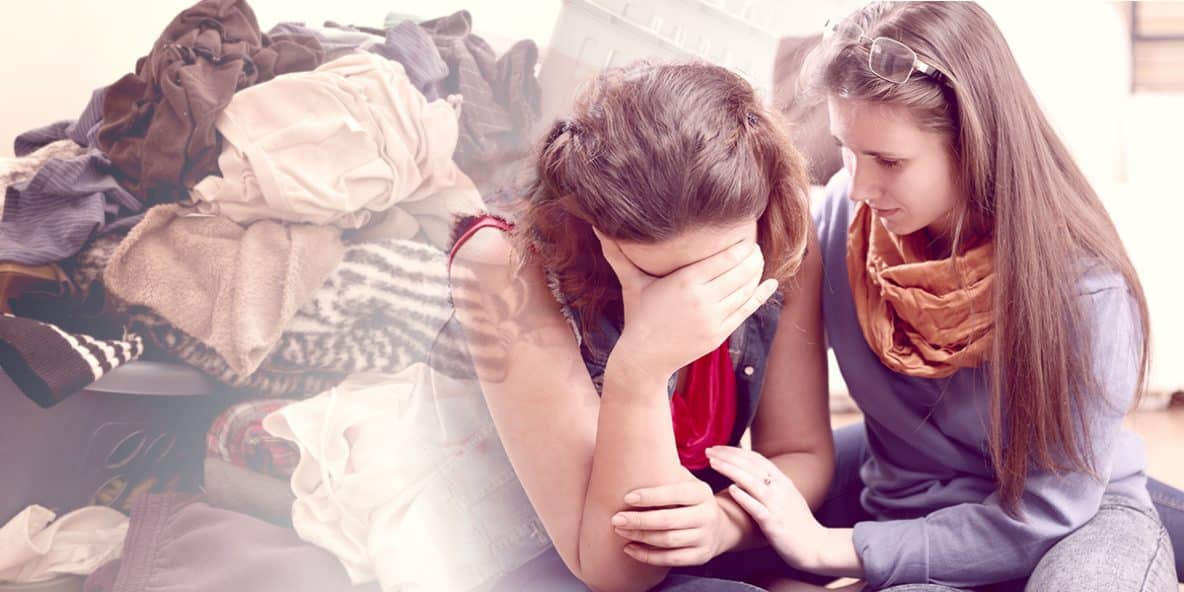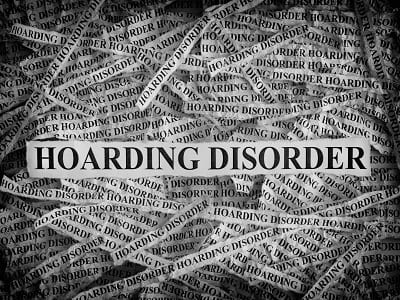Hoarders have a problem with keeping things, which is bad. The problem with hoarding is much more than just clutter or disorganization; it can lead to serious health hazards for those who hoard as well as their family members and friends. In this article, we will explore how hoarding affects those around them and offer some helpful tips on how you can help with hoarders or someone living with the effects of hoarding disorder.
Contents
How Hoarding Disorder Affects Family And Friends?

People with hoarding disorder are attached to their belongings. Even if it is not valuable or useful, they will keep it. People usually get happy when they buy things or accumulate them. But if they want to get rid of these things, it makes them feel bad. This may result in a messy home, a dirty home, and it could be harmful to your family.
If you have a loved one with a hoarding disorder, it can be hard to feel good. The hoarder might not want to change their behavior, such as how they live or what they do. You may be angry, irritated at the way they live, or concerned about your relationship with them. You may worry that your child is spending too much money or that there will be a fire because of all the clutter in their home.
If you live with a hoarder, it can be hard. When the mess gets very big, you might get angry or frustrated. You may have lost your living room or your kitchen because of all the things that are there. One might also feel offended because they take up certain parts of your home for themselves. You may feel that the hoarder cares more about their things than they do about you.
Symptoms Of Hoarding Disorder

People with hoarding disorder accumulate a lot of things that they do not need. They have trouble getting rid of these things or moving them out of their home.
- People might see piles of stuff everywhere, like boxes and trash.
- They might also see clothes on the floor because people can’t find places to put them away.
- It can be hard for someone with a hoarding disorder to use their kitchen and bathroom.
- Many people have so many things in their house that they cannot put them anywhere. That is because people with a hoarding disorder cannot clean it up enough to be able to cook or take a shower.
Reasons for having Hoarding Disorder
There are several reasons why people have a hoarding disorder.
- One reason is that they feel safe when there’s lots of stuff in their home.
- People think that if they lock their doors, it will keep bad things from happening. Bad things are fires and burglars breaking into your house.
- Owning your own space with all these things around you can make you feel good. This is because everything has order and it makes sense to you.
- Sometimes it is good to get rid of things that are bad for you. Other people might not understand your disorder or think that something is wrong with you or what you like. But if it makes you unhappy, then getting rid of those things can make you happier!
How To Help Someone With Hoarders Disorder?

Helping your family member who has a hoarding disorder will not happen overnight. It takes time and patience to help someone with hoarding. You can find out if they want to get rid of anything and then take it away from them. The first thing you need to know is that this behavior has been happening for a long time and they may have strong feelings about their things. Here are some tips on how you can help your loved one who struggles with hoarding:
Communicate
Talk openly about the situation without blaming them or getting angry at them because this might make them feel worse. Letting go of emotions before talking to your family member will make it easier for both people involved in the conversation.
Do Not Argue
Arguing back and forth gets nowhere fast since neither person wins when an argument happens. It is also not helpful to make accusations about the hoarding. Just listen and show your family member that you want them to get help.
Don’t Give Up
The first time they say no, it may take a few times before they agree on getting rid of their things. If someone has had this problem for many years, it will be hard for them to let go. Keep trying! Don’t stop until you find something good out of it all.
Be Patient
You must be patient with people who have hoarding disorders. It takes work to help them, but you should not lose hope.
You can also be an advocate for people with hoarding disorder. Join a support group and help others who are going through the same thing as you or your family member! Work together to make a difference and show how it is possible to be successful.
Examine your behavior
People who have hoarding disorder are not just hoarders of things, they also tend to be hoarders of emotions.
When someone with hoarding disorder starts to change their behavior, the people around them need to look at themselves. If everyone changes together, then everyone will be better off.
Examine how you talk about the person’s stuff or living conditions by yourself or other people in your life. You might think things like “she doesn’t deserve this” or “he’ll never get his act together”.
Maybe you have been feeling frustrated because of these thoughts. But try to work on them instead. When you do this, they will be more aware of what they do next time and use positive words towards others. Your loved one may still need support from friends and family, but they can get it. This will help them feel more confident about themselves. They will know what you want for them in the long run!
Be open-minded
People who have a lot of things tend to keep them. They don’t want to get rid of them, and they might not tell other people why they do it. Some people might not know how others feel because they don’t talk about feelings. To help, you can try to open up more, too. It’s important to share your life with others instead of just blocking out all of your emotions by hoarding memories. This behavior may start when people are young. For some reason, they go through something and then the behavior starts. It is important to let others know about this and give them a chance before writing them off.
Don’t enable your loved one’s hoarding
Give them the silent treatment when they won’t let you help. Buy new things for them so that their stuff isn’t in the way. Do chores around their house to keep it clean and organized, even if your loved one doesn’t want you to because this will make hoarding disorder worse. Letting go of items is hard enough by itself but adding more stress from other people can be too much which might cause someone with hoarding disorder not to want to get rid of anything else at all! You don’t have to stay there while your friend or family member continues down a path towards self-harm either.
Sometimes people do not want to make changes. They may think that they are fine. But sometimes, they find out that it is not good for them and then they want to make changes. This can be a good thing because your loved ones will feel more confident about their choices. They may thank you, too.
Don’t give up on someone with hoarding disorder
let them know that you are there, no matter what happens next. It’s normal for people to lash out at their friends or family members who hoard things. But even though it is normal behavior, it is still worth noting. Instead of using negative words, use positive ones. It will make the person feel better. If you use negative words, they might feel bad about themselves later on. So don’t forget to use positive words even when times get tough! Life isn’t perfect by any means but working together as a team to help each other out is what matters most.
Keep your expectations realistic
Your loved one may not be able to change right away but that doesn’t mean they won’t eventually. Don’t expect a person who has a hoarding disorder to get better overnight. It takes time. It might not happen right away because it has taken years for the disorder to take over their life. Let them know that you will be there every step of the way, no matter what happens. Even if you are not doing well, try your best. This will help us get through difficult times together. It’s good to tell others how much you care about their well-being. You can also tell them that it will make a difference. If you are caring about people with hoarding disorder, then it is important to forgive yourself when you make mistakes sometimes.
Encourage your loved one to seek treatment and support
Tell them that you are there for them no matter what. Encourage them to get help by calling the helpline, seeing a therapist, or talking to other people who have problems. It is important to tell people about local resources for their loved ones who have hoarding disorder. You can find other people like them and get help. This is important because it is hard for people to face this issue alone without feeling lonely. It has been going on for years, so it matters. Sometimes it takes time for people to reach out and get in touch with you. They might not be able to email or call at first. But they will thank you and want to get in touch because of how patient and kind you were to them. You don’t need to be trained for this. Just knowing about hoarding will be enough.
Conclusion
Hoarders are people who accumulate items, usually things that most other people would not want. They may feel a need to keep them because they think of their possessions as important or valuable in some way, or they might be afraid of throwing something away for fear that doing so will cause harm (such as the item being needed later). The problem with hoarding often becomes apparent when there’s no longer enough room in the home for living activities such as cooking, sleeping and preparing food. Being unable to use your kitchen fully leaves you feeling like you don’t have any control over life. If this sounds like someone close to you, we’re here to help!
If you are looking for affordable Online Counseling MantraCare can help: Book a trial therapy session


